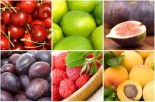So much attention has been put on making sure you "get your antioxidants" in order to prevent disease and other effects of aging.
But is there a dark side to antioxidants? A deadly side, perhaps?
Special guest, Dr. Shawn Talbott, says yes, there is.
You might be thinking to yourself, "Wait, that can't be right! I've heard about all the great benefits of antioxidants, especially in supplement form because they're more concentrated. More is better, right?"
What doctors and researchers are finding out, is that these antioxidant supplements are not only NOT better for you, but more is worse, because they interfere with the body's innate ability to protect itself and can actually do damage to the body.
What sort of damage?
In the past few decades, with the emphasis on these highly concentrated synthetic antioxidant sources such as vitamins E and C, as well as Zinc, Selenium, and Beta Carotene, researchers are not only seeing a lack of protection from oxidative stress, but higher incidences of skin cancer, lung cancer, and other major health problems as well.
It's not just the antioxidants' effects by themselves; just because you ingest them in any form doesn't mean you're reaping the full benefits. Getting the proper nutrition in addition to the antioxidants can actually turn on the body's ability to produce its own antioxidant enzymes.
There is a pathway called NRF-2, which is a protection system within each cell that shields cells from cellular stress (oxidative stress), such as too much sunlight, polluted air, and even your own metabolism. When your cells come under stress, this pathway helps them to produce their own class of antioxidants.
Think of the NRF-2 pathway as a cellular thermostat for stress... when it senses that your cells are becoming overwhelmed, it produces the protective enzymes which help the cell to survive and thrive.
Taking massive dosages of antioxidant supplements interferes with this whole process.
There is now a concerted effort by many nutritionists to focus people back to brightly-colored fruits and vegetables as sources of antioxidants, instead of supplements.
Additionally, there are compounds in fruits and vegetables, turmeric, green tea, milk thistle, and other herbs that activate this protective pathway and essentially help you make your own antioxidants instead of having to take them externally.
If you do take supplements, or something like a multivitamin, how much is too much?
Dr. Talbott suggests that you don't take more than 100 percent of the recommended daily value of anything; even for the B vitamins, which are often recommended more than 100 percent.
"Food first" is a great mantra to follow. You're not just getting your vitamin E in almonds, or your vitamin C in citrus fruits... you're getting so many more beneficial nutrients.
On days when you are experiencing extra oxidative stress, such as after an intense workout, you will want to supplement with foods that contain antioxidants, such as turmeric, milk thistle, or green tea.
People often forget that the benefits of nutrition don't come from those nutrients acting alone. There is a matrix, a synergy, of benefits that happens within foods and by combining different types of foods. For example, eating a tomato and an avocado together provides more health benefits than just eating one or the other.
Tune in as Dr. Talbott joins Lisa to share more on the dark side of antioxidants, as well as the proper way to get them in your diet.

The Dark Side of Antioxidants
Guest
: Shawn Talbott, PhD
From the Show: Naturally Savvy
Summary: So much attention has been put on antioxidants to prevent disease and other effects of aging. But is there a dark side to antioxidants? A deadly side, perhaps?
Air Date: 9/10/14
Duration: 10
Host: Andrea Donsky, RHN and Lisa Davis, MPH
Απολαύστε την εμπειρία ενός ζωντανού καζίνο με πραγματικούς ντίλερ στο Infinity Casino, προσφέροντας παιχνίδια όπως Live Blackjack και Live Roulette.




